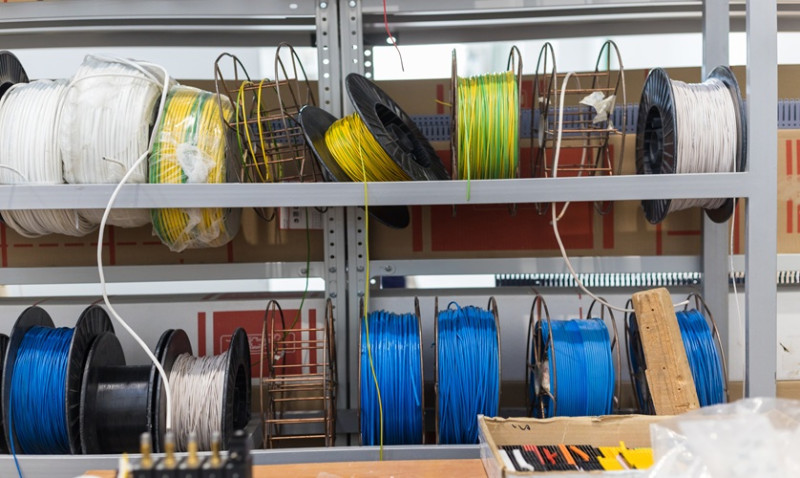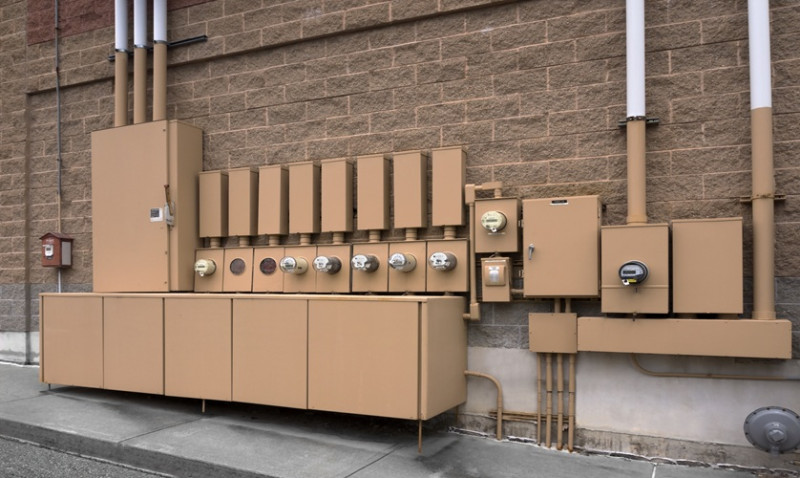
When it comes to powering your home or business, keeping things safe and efficient is paramount. That’s where electricians come in. But many people are unsure about the full scope of what an electrician actually does. From rewiring a period property to installing a smart home lighting system, electricians do much more than simply changing fuses or installing sockets.
Whether you're a DIY enthusiast attempting to upgrade your lighting, a young couple renovating your first home, a professional interior designer planning a high-end project, or a fellow tradesperson collaborating on-site — understanding the role of an electrician can help you work better with one, or know when to call them in.
Let’s take a closer look at what electricians do in their day-to-day work, the different types of jobs they undertake, and why their expertise is essential across a wide range of domestic and commercial settings in the UK.
Electrical Installations
One of the core responsibilities of an electrician is carrying out electrical installations. These can range from fitting plug sockets, switches and light fixtures in a domestic home, to more complex systems like installing consumer units (fuse boxes), external power supplies or three-phase wiring in a commercial building.
Electricians often play a key role in new builds, ensuring the entire electrical system is designed and installed to meet UK Building Regulations and IET Wiring Regulations (BS 7671). They plan out wiring diagrams based on architectural blueprints or customer specifications, ensuring power is delivered efficiently and safely throughout the property.
Electrical installation also includes adding new systems to older homes during renovations — including underfloor heating, EV (electric vehicle) chargers, and garden lighting circuits. For DIYers and home improvement enthusiasts, it's important to call in a qualified electrician for this kind of work to ensure everything meets current legal safety standards.
Electrical Maintenance and Repairs
Over time, all electrical systems are subject to wear and tear. Electricians carry out essential maintenance work to detect and fix potential issues before they cause serious disruptions or safety hazards.
Common maintenance tasks include tightening loose connections, replacing faulty fixtures, patching damaged cable insulation, or identifying circuits that are at risk of overload. Preventive maintenance is especially important in commercial or industrial settings where sudden electrical failure could put safety at risk or halt operations entirely.
For homeowners, electricians can carry out regular electrical condition reports (also known as EICRs) — especially crucial for rental properties or homes over 25 years old. These inspections assess the overall health of your systems, check for outdated equipment (such as old fuse boxes), and identify issues such as ungrounded circuits or illegal DIY wiring.
Diagnosing Electrical Faults
Diagnosing faults is another critical part of an electrician’s job. Whether the lights keep flickering, the fuse keeps blowing, or sockets are mysteriously not working, electricians use testing equipment like multimeters and insulation testers to trace exactly where the fault lies.
This kind of troubleshooting is often complex and not advisable for unqualified individuals to attempt on their own. Faults may not always be visible — sometimes buried under flooring, inside walls, or due to wiring that’s incorrectly installed. Incorrect diagnosis can lead to further damage or unsafe repairs.
Electricians ensure your system is restored to safe, functioning order by repairing or replacing the affected components. One of the most important regulations they follow is ensuring proper earthing and bonding to prevent any fault currents posing a danger to occupants.
Upgrading Electrical Systems
Older properties — many of which are common across the UK — often don’t meet the demands of modern electrical usage. As more households adopt smart appliances, home offices, and electric vehicles, electrical loads can easily strain outdated systems.
Electricians upgrade these systems by rewiring circuits, installing new consumer units with modern RCD protection, and expanding capacity to safely accommodate today’s tech and lifestyles. This process requires a deep understanding of not only how electricity works, but how people interact with it in evolving environments.
If you’re planning to undertake a major renovation or extension, a qualified electrician will likely need to assess your current setup and recommend upgrades tailored to your needs. This includes adhering to Part P of UK Building Regulations, which governs electrical safety in dwellings.
Working With Other Professionals
Electricians don’t work in isolation. On renovation or construction projects, they often coordinate with architects, interior designers, plumbers, heat pump installers, and builders. Effective communication ensures power and lighting systems are integrated properly with the broader design and structural elements.
For example, internal cable routing needs to be planned before walls are plastered. Light switches and socket placements are designed around furniture layouts. Outdoor lighting circuits need careful planning to meet both aesthetic and functional goals set by landscape designers.
If you’re a professional in these industries, collaborating with a reliable electrician early in the planning phase can prevent costly re-works and delays later on. It also helps ensure a high-end finish that complements your creative vision.
Certification and Compliance
One of the most important — though often overlooked — parts of an electrician’s job is ensuring compliance with legal standards. In the UK, most domestic electrical work must comply with Part P of the Building Regulations. This includes ensuring all installations are tested and certified properly.
A registered electrician will issue certificates for completed work, such as Electrical Installation Certificates (EICs) or Minor Electrical Installation Works Certificates (MEIWCs). For notifiable work – like full rewires or new circuits – the job must be reported to the local authority or done by a Part P registered electrician who can self-certify.
For landlords and letting agents, these certificates are critical for legal compliance and tenant safety. Electricians can also advise property owners on staying compliant with evolving legislation, especially around issues like the new electrical safety standards for rental accommodation introduced in recent years.
Types of Electricians
There are different types of electricians in the UK who specialise in various areas:
| Type | Specialisation |
|---|---|
| Domestic Electricians | Focus on home installations, rewires, lighting, appliance wiring and fault-finding. |
| Commercial Electricians | Work on retail premises, offices, schools and other non-domestic buildings. |
| Industrial Electricians | Deal with high voltage systems, machinery and three-phase power in industrial facilities. |
| Maintenance Electricians | Employed to maintain and repair existing systems across properties. |
| Installation Electricians | Typically involved in new construction or major refurbishment projects. |
Understanding which type of electrician you need will help ensure your project is handled efficiently and by the right specialist. It also helps avoid issues related to insurance or future resale when proper certifications aren't provided.
When Should You Call an Electrician?
While some small tasks might seem straightforward to tackle yourself, UK electrical regulations and safety considerations mean that many jobs are legally required to be completed or signed off by a qualified electrician.
Redecorating your home? You'll need an electrician if you’re moving plug sockets, fitting new lighting, or installing underfloor heating. Experiencing electrical faults? Call an electrician immediately — especially if there are signs of burning smells, tripped breakers, or flickering lights.
For designers, architects, and builders – involving a certified electrician early in your planning prevents conflicts with layouts and ensures your electrical setup is fit for purpose. For DIYers, even small changes like installing a new ceiling light may have underlying implications you didn’t expect, such as insufficient cable capacity or lack of RCD protection.
Final Thoughts
Electricians are highly trained professionals who do much more than change a lightbulb. As homes and businesses in the UK become more connected and reliant on electrical systems, their role is expanding to meet growing demand for safety, efficiency, and smart tech integration.
From essential repairs to complex system designs, understanding what electricians do can help you make better decisions — whether you're planning a home improvement, managing a property portfolio, or preparing for a large-scale construction project.
In short: when in doubt, always consult a qualified electrician. They’ll keep your power running safely, legally, and efficiently — giving you peace of mind and helping your space function as beautifully as it looks.






